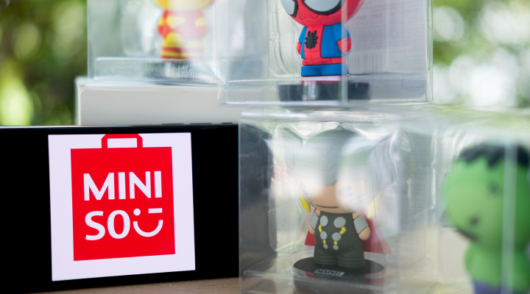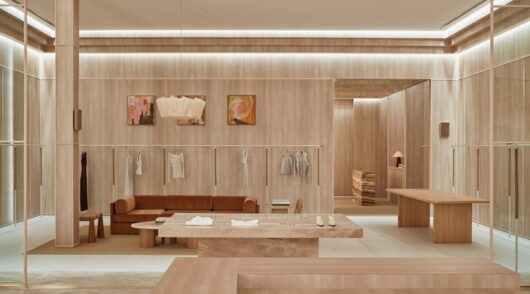Bangkok is a massive city with a metropolitan area population of more than 17 million. If it can now lay legitimate claim to have overtaken Singapore as Southeast Asia’s shopping capital, then Central Pattana, the mall arm of Thailand’s Central Group and the biggest player in the country’s shopping centre sector, has to take some of the credit. Its quality in bricks-and-mortar was again evidenced in the income statement for the fourth quarter and the year released last week: not only is it
s it doing yeoman’s work for its shareholders with the biggest dividend payout in its history in 2024, but it hit new revenue heights as well, helping to turn it into a banner year for the company and setting the stage for an even better one in 2025.
More than three-quarters of the company revenues in 2024 came from renting and servicing mall space. However, as a separate revenue stream and to ‘densify’ its mall primary trading areas, the company also develops and operates hotels, office buildings and residential projects, frequently co-located with its malls. Indeed, it dubs its strategy, not inappropriately, as “retail-led mixed-use” and in 2024 all of its businesses hit record highs. Occupancy for its malls was 90 per cent in the fourth quarter, 88 per cent for its office buildings and 73 per cent for its hotels.
Shoppers are coming, but renovations are holding back some malls
In the fourth quarter, revenues were 13.8 billion baht ($419 million), an increase of 6 per cent on last year, and net income was 3.9 billion baht ($118 million), down 2 per cent on last year. However, the latter number was driven by an accounting change rather than an operational decline. Without the adjustments, core profit enjoyed a double-digit percentage increase. The company said most, but not all, of the malls in its portfolio experienced record levels of foot traffic and revenues. Those that didn’t were usually being temporarily disrupted while upgrades were carried out under the company’s ‘asset enhancement plan’.
Four malls are getting a facelift, two of them to be completed by mid-2025 and two in the first half of 2026. Even now, overall foot traffic across the portfolio has not quite returned to pre-Covid levels, but it’s getting close.
Points rewards are key sales driver
For the whole year 2024, revenues came in at a record high of 51.8 billion Thai baht ($1.6 billion) and the net profit of 16.7 billion baht ($506.9 million) was a record as well. Both of these numbers represented year-on-year growth of 11 per cent. According to the company, the drivers of operating performance were primarily threefold. First, same-store rental revenue growth because of higher tenant sales attributed by the company, in a moment of self-congratulation, to its partnership with tenants, events and activities in the shopping centres, and experiential shopping. Central’s malls all have a rewards program whereby shoppers get redeemable points rewards for purchases at some, but not all, of the stores. (It excludes the major brands owned and operated by Central Pattana’s sibling company Central Retail, including Supersports, Power Buy and Tops.) Central says that the rewards campaign has powered three times the sales growth at participating tenants versus the growth at non-participatingtenants.
A second major driver of company performance were the two new integrated mall/residential projects opened during the year: Central Nakhon Sawan in the central plains region, and Central Nakhon Pathom, 60 kilometres west of Bangkok.
Third, Central Pattana has been able to cut operating costs by implementing efficiency improvements, including the installation of solar panels to cut electricity costs.
Southeast Asia’s most important mall operator?
In nearly every country in Southeast Asia there is at least one company that serves as a general bellwether for how the mall business is doing, which in turn is an indicator for the health of retail generally. Extreme temperatures and poor external pedestrian infrastructure have always made vertical, air-conditioned malls the most important retail platform in Southeast Asia. No country illustrates this better than Thailand, and no company exemplifies it better than Central Pattana. While Central Pattana and its large competitors in Bangkok, Siam Piwat and the The Mall Group, serve a distinct ‘global city’ market, Central also has an extensive portfolio in the provinces and is therefore more important to the average Thai consumer outside the capital, which is 75 per cent of the population.
Specifically, Central has 42 regional or superregional malls, of which no fewer than 23 are in the provinces. Often, it is the only mall in provincial capital cities and serves as a true community hub where people come to shop and just as importantly socialise over food in one of the malls’ plethora of restaurants, cafes and food court tenants. Hotels are attached to a number of the malls, and in the fourth quarter the average room rate across its portfolio of 10 hotels was 3,508 baht (about $110) which is not at all shabby for Thailand considering they are all outside the capital.
Of course, it also owns some of the biggest and meanest malls in Bangkok, including Central World, which is often the place where international brands like Lululemon make a beachhead in Thailand. From there, they fan out across Bangkok and around the country using Central’s malls as their real estate platform: Muji, Uniqlo, H&M and Pop Mart are good examples. The company says that 76 international brands have opened their first stores in Thailand in a Central Pattana mall, and the majority of these are in Central World.
But its the expansion possibilities it offers brands that give Central Pattana a special edge. There are other examples of this throughout the region of course, with Vincom in Vietnam and SM Prime in the Philippines immediately springing to mind: they are building nationwide real estate platforms of malls that can be exploited by brands that want to open flagship stores outside of the major cities where most of the population still lives. The difference is qualitative more than anything: Central Pattana knows a thing or two about creating a vibrant mall experience and leverages the strong domestic brands in the portfolio of its sibling company to make expansion more attractive for global players.
All in all, this is arguably the most important mall operator in Southeast Asia.
Further reading: Inside Central Chidlom’s luxury makeover in Bangkok





